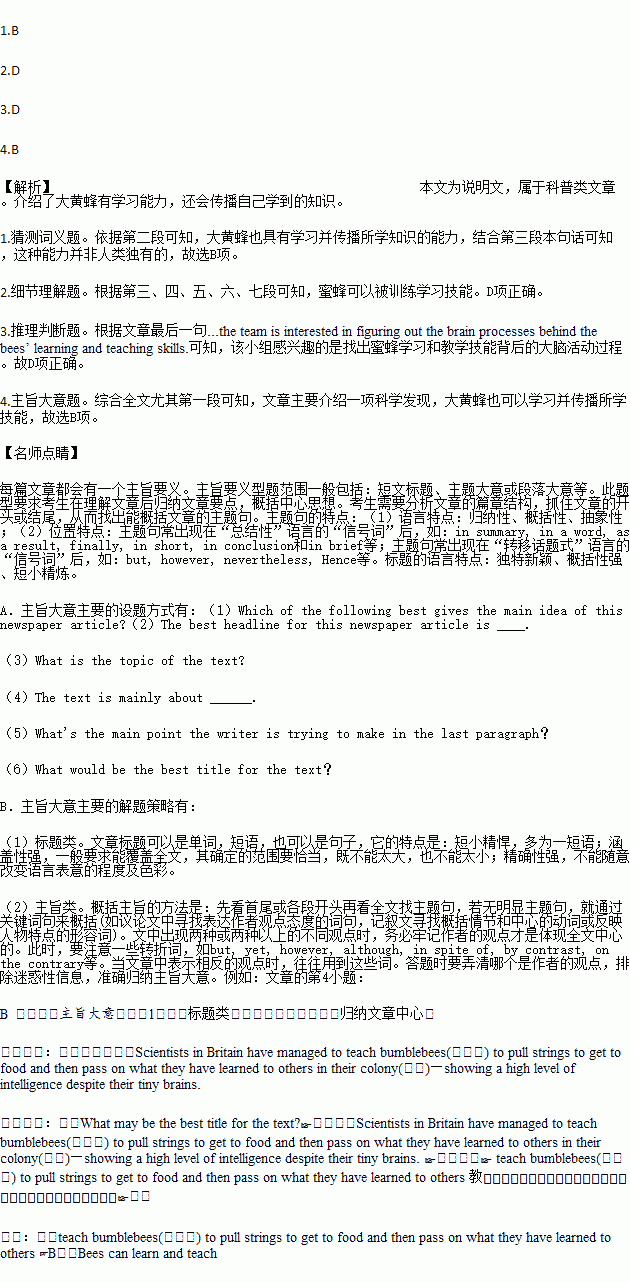题目内容
Scientists in Britain have managed to teach bumblebees(大黄蜂) to pull strings to get to food and then pass on what they have learned to others in their colony(群体)—showing a high level of intelligence despite their tiny brains.
Researchers at Queen Mary University of London said the experiments, often used to test the intelligence of apes (猿) and birds, showed for the first time that some insects are up to the task, and can also pass skills on through several generations.
The findings add to the evidence suggesting the ability for “culture spread” — the ability to learn and pass on knowledge and skills — may not be exclusive to humans.
In the research, published in the journal PLOS Biology on Tuesday, the scientists were able to train 23 out of a group of 40 bees to pull strings with their legs and feet.
The strings were attached to discs — or artificial “flowers” — containing food at their center but placed under a transparent screen. The bees, spotting the food beneath the screen, learned to pull the “flowers” out by pulling the string with their legs and feet to be able to get to it.
From another group of bees given the chance to solve the task without any training, only two of 110 were successful.
Another group of bees was then allowed to observe the trained bees pulling the strings, and 60 percent of them successfully learned the skill. Finally, trained bees were put in colonies, and the scientists found the technique spread successfully to a majority of the colony’s worker bees.
Lars Chittka, a Queen Mary University professor who guided the project, said the team is interested in figuring out the brain processes behind the bees’ learning and teaching skills.
1.What does the underlined word “exclusive” in Paragraph 3 probably mean?
A. Ordinary. B. Unique. C. Beneficial. D. Widespread.
2.What did the researchers find about bees?
A. Bees learn best in insects.
B. Bees are as clever as birds.
C. Bees are born good learners.
D. Bees can be trained to learn skills.
3.What may the research team focus on next?
A. What else bees can do. B. Where bees learn skills.
C. How bees teach others. D. How bees’ brain work.
4.What may be the best title for the text?
A. Small bees, great abilities B. Bees can learn and teach
C. Bees are smarter D. Let bees learn
 轻松暑假总复习系列答案
轻松暑假总复习系列答案
